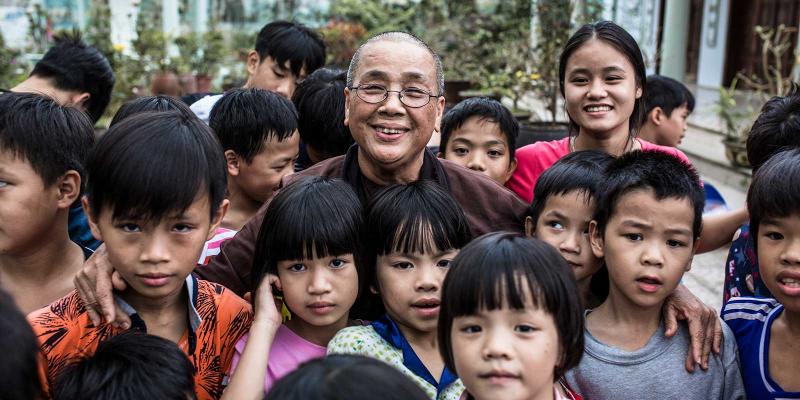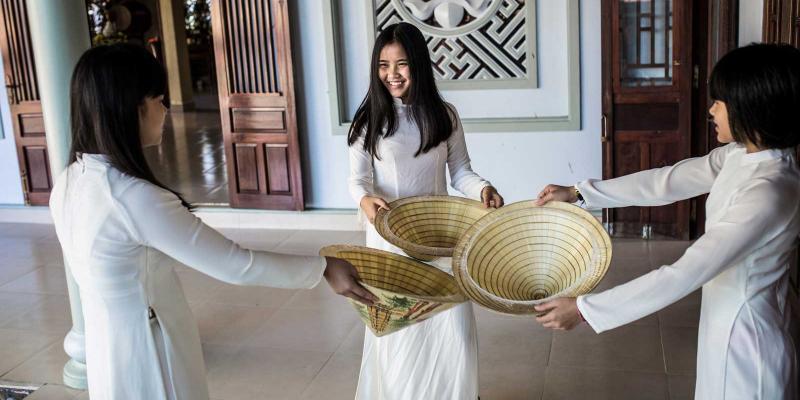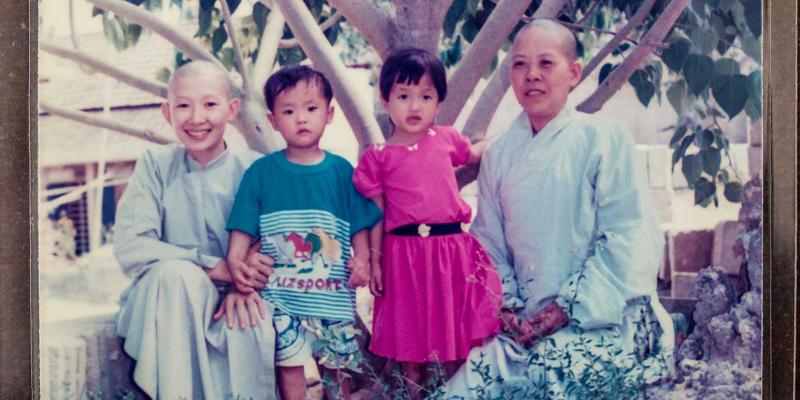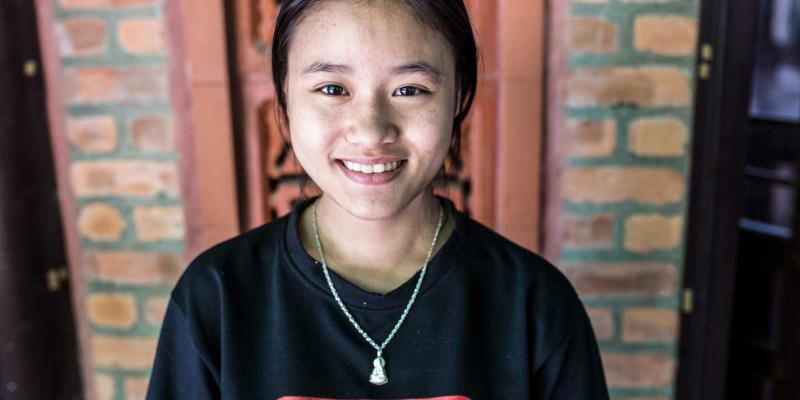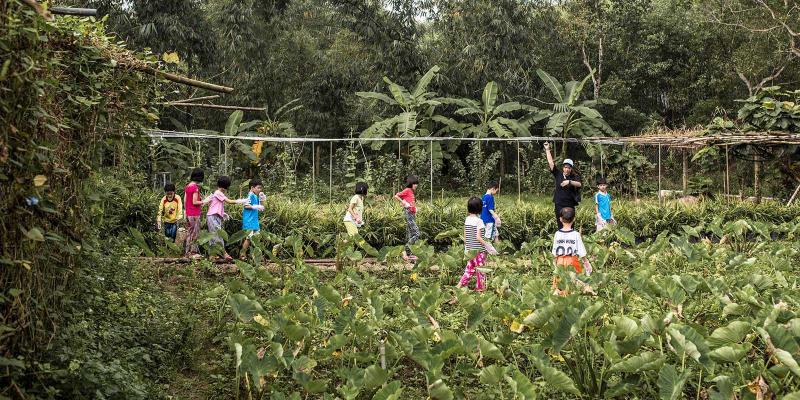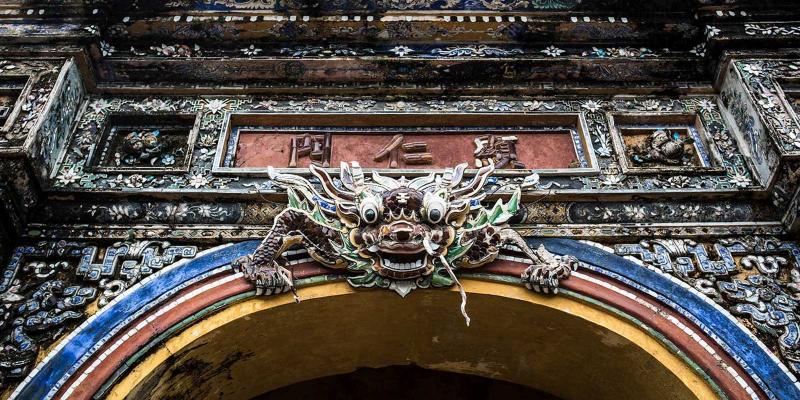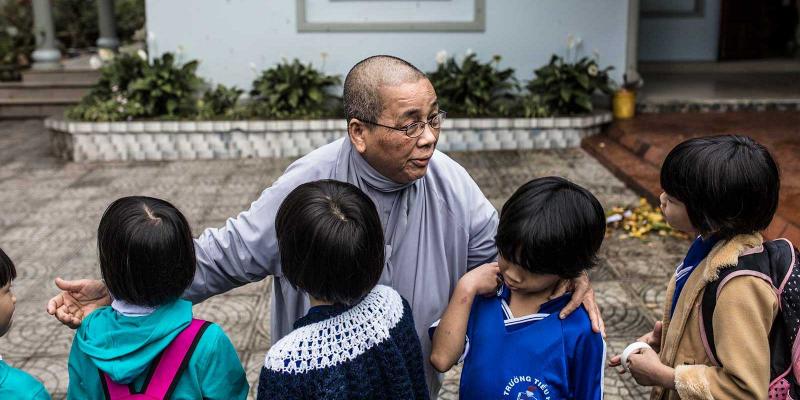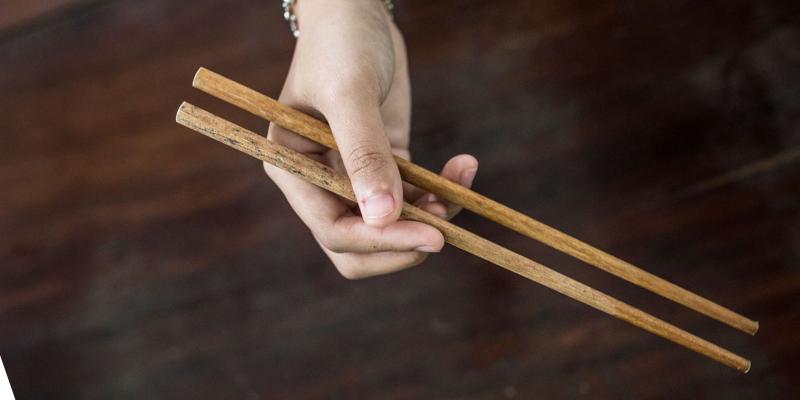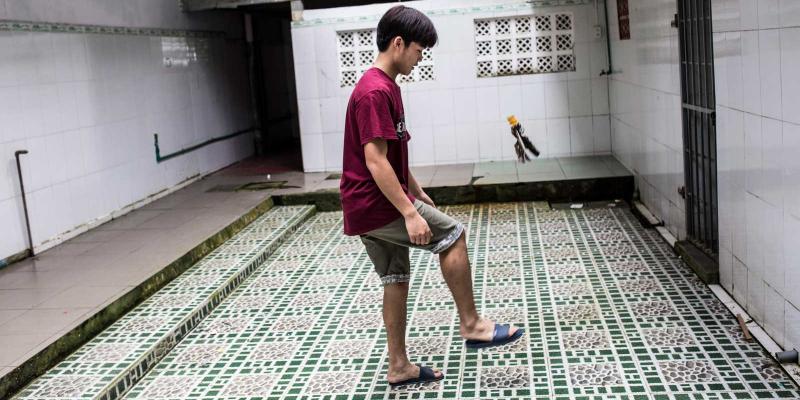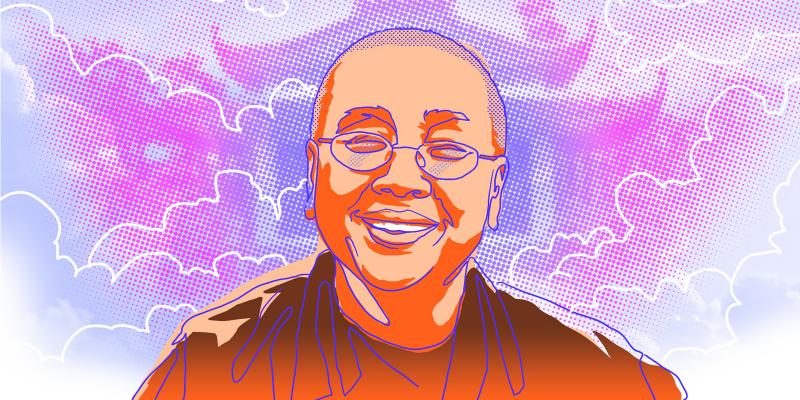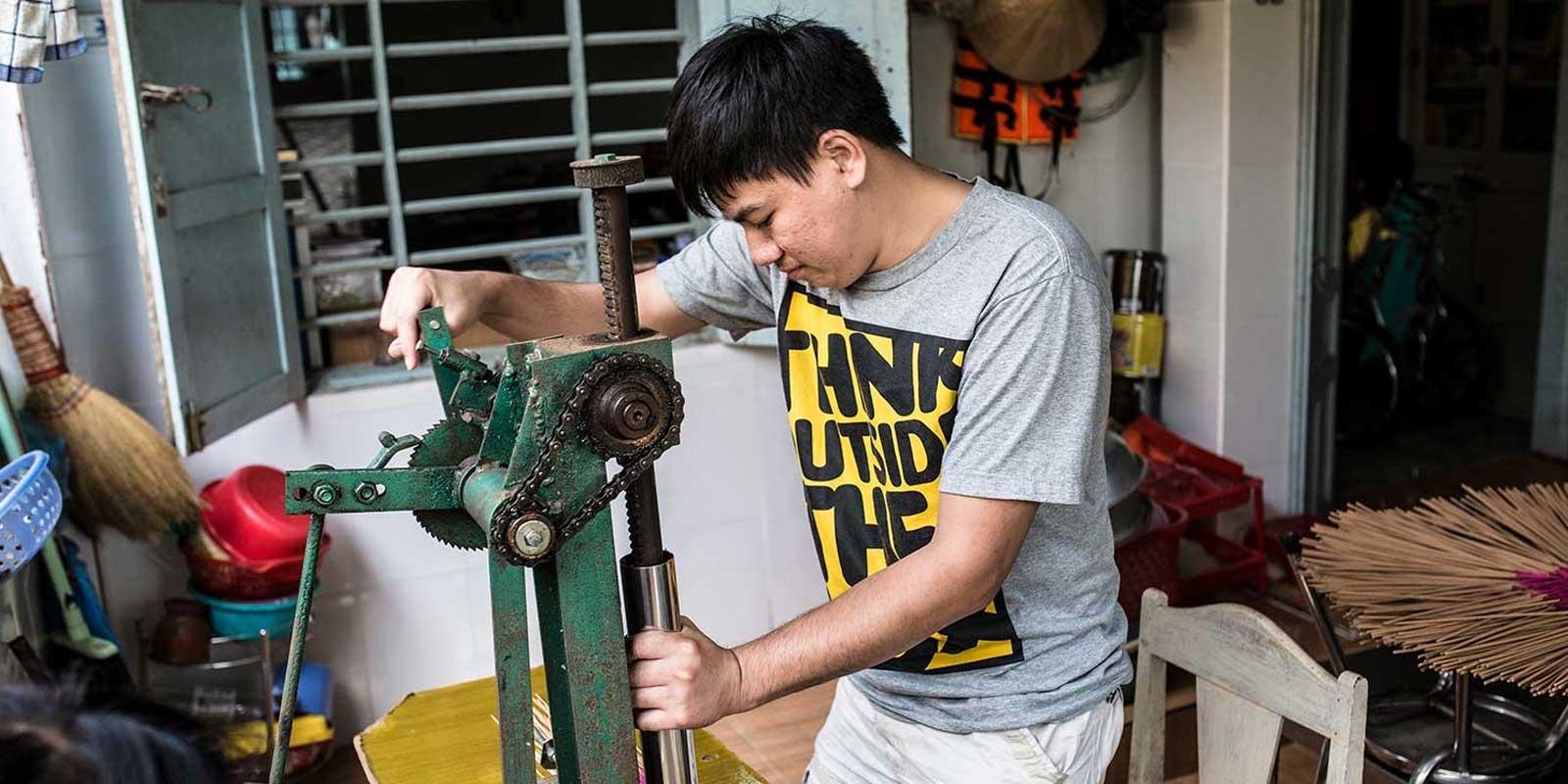
If only Nhon had taken the stairs. Then he’d have had the chance to play football with Vietnam’s Paralympic football team ...
Just imagine getting to represent Vietnam in the Paralympics! Nhon found it hard to stop thinking about it, but he was woken from his daydreams by the noisy shouts of the other children. The shuttlecock was right by him on the ground. He’d missed.
Nhon picked it up and hit it with his badminton racquet. Badminton was great, but not as fun as football. And someone from Vietnam’s Olympic committee had actually approached him and asked if he wanted to be on the country’s football team for young people with disabilities. Nhon was born with a developmental disability that affects his brain function.
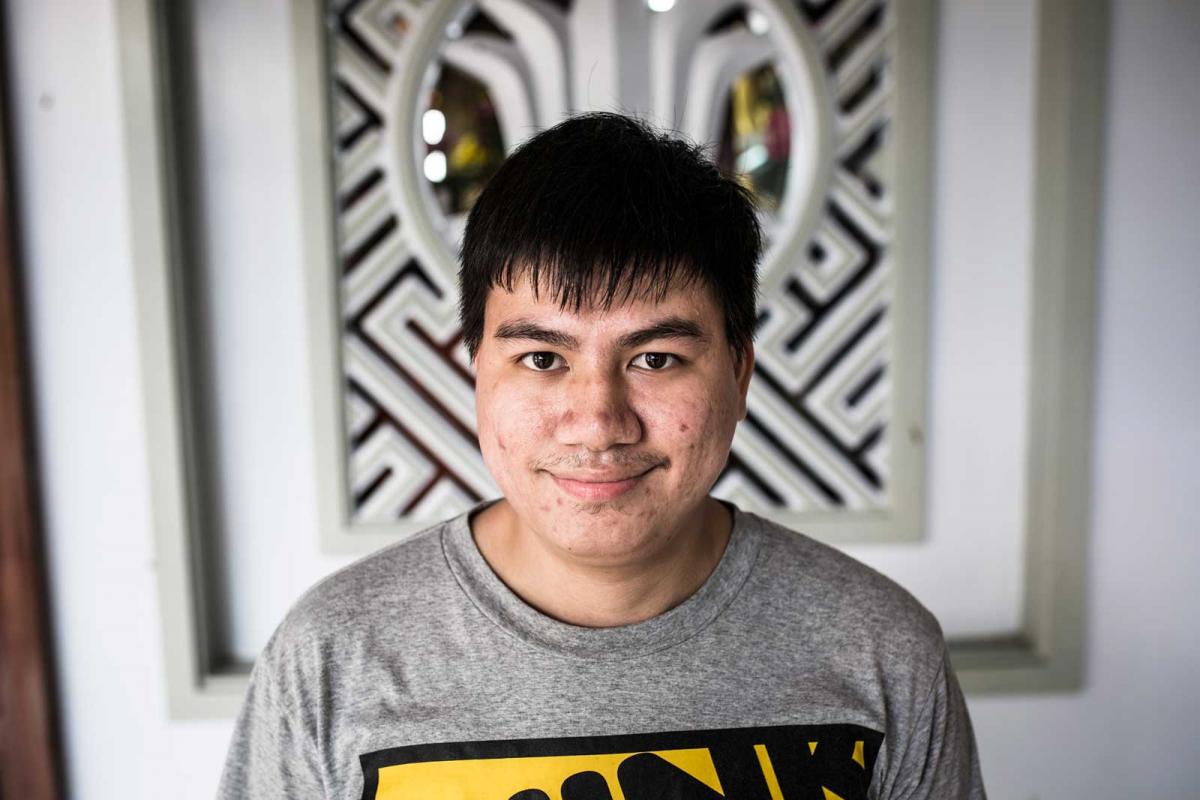
Dangerous jump
Now his friends were shouting again. He watched the shuttlecock soar above him and down over the railings around the children’s home courtyard. Nhon ran to look for it. The shuttlecock was three metres below.“Run down and get it,” cried his friends.
“It was you who missed!”
When he was telling the nurse later what had happened, he realised his brain had been playing tricks on him. Instead of running to the stairs and walking down, Nhon jumped. He screamed in pain as his foot collapsed beneath him. The children who had been urging him on laughed at first. Then they went quiet and ran to get the nuns.
So no Paralympic Games for Nhon. He had sprained his foot. And Vietnam’s Paralympic football team hadn’t managed to qualify anyway. So maybe it wasn’t such a big deal about his foot.
Making incense sticks
Nhon sits at the machine that makes incense sticks.“Can you pass me more sticks, Nhi,” he asks a younger girl who is helping him. On a good day, Nhon can make a thousand incense sticks. On those days he has help from Nhi’s big brother.
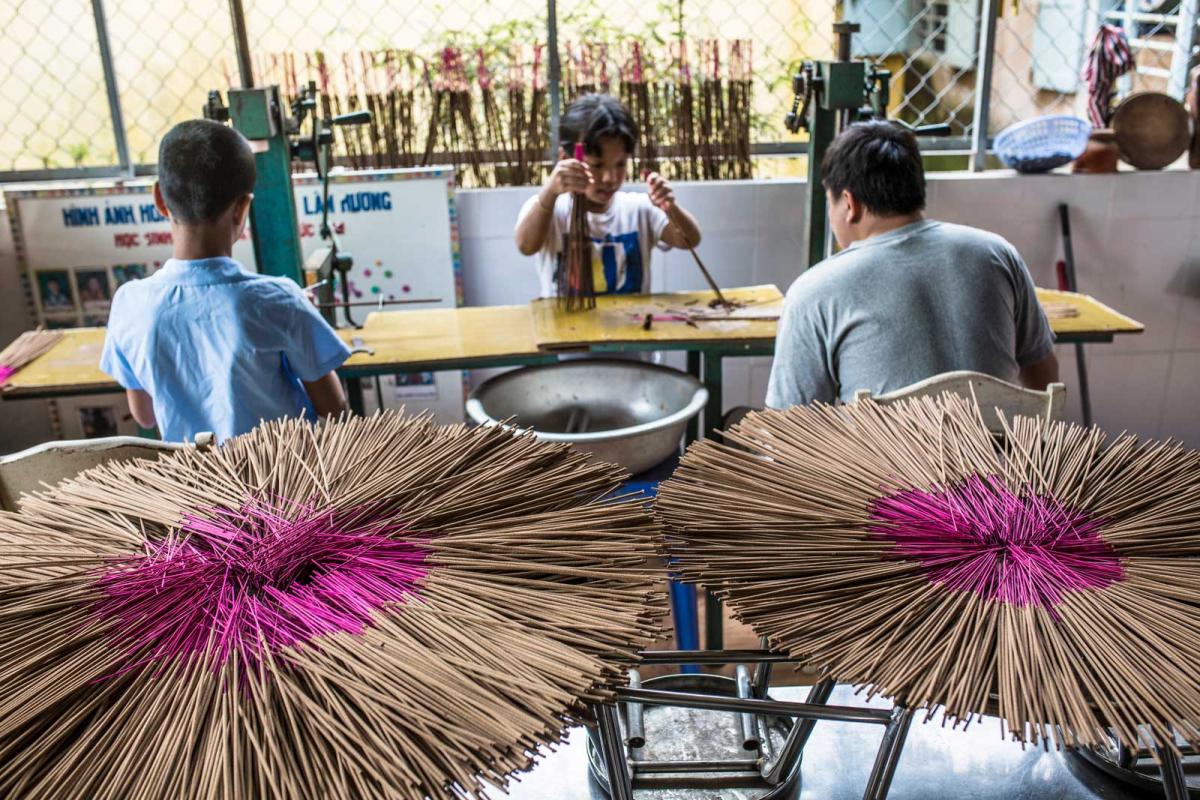
Nhon is tall next to the other children at Duc Son pagoda’s section for differently abled children. Several of the younger children are sitting in the next room, drawing. A nurse is helping a little boy who is blind.
Nhon presses brown pulp into a steel tube and turns a lever to feed the thin wooden stick through the tube. Once the stick comes out the other side, it’s a finished incense stick that can be used in the pagoda when the children and nuns are praying to Buddha. The pagoda also sells incense sticks to people who want to burn them at home.
Popular with everyone
Many of the children at Doc Son pagoda’s children’s home have been orphaned. But Nhon’s mum works in the pagoda’s kitchens. Her brain also plays tricks on her at times. No one knows what kind of condition she has. Nhon’s mum comes from northern Vietnam and the nuns say that she was affected by the toxin, Agent Orange, that the Americans sprayed over North Vietnam during the war.Nhon’s mum was living on the street and begging when she fell pregnant. She met a woman who said that she should seek support fromthe nun Minh Tú at Duc Son pagoda in Huế. Shortly after, Nhon was born in the pagoda’s children’s home. He inherited his mother’s challenges, having difficulties learning to speak, read and write. He often felt angry and found it hard to control his body movements. With the support and help of the nuns and other children, Nhon has become calmer and feels better.
Nhon is popular with everyone at the pagoda. He helps out with the younger children and with cleaning while the other children are at school. When the children get back, they play football with Nhon.
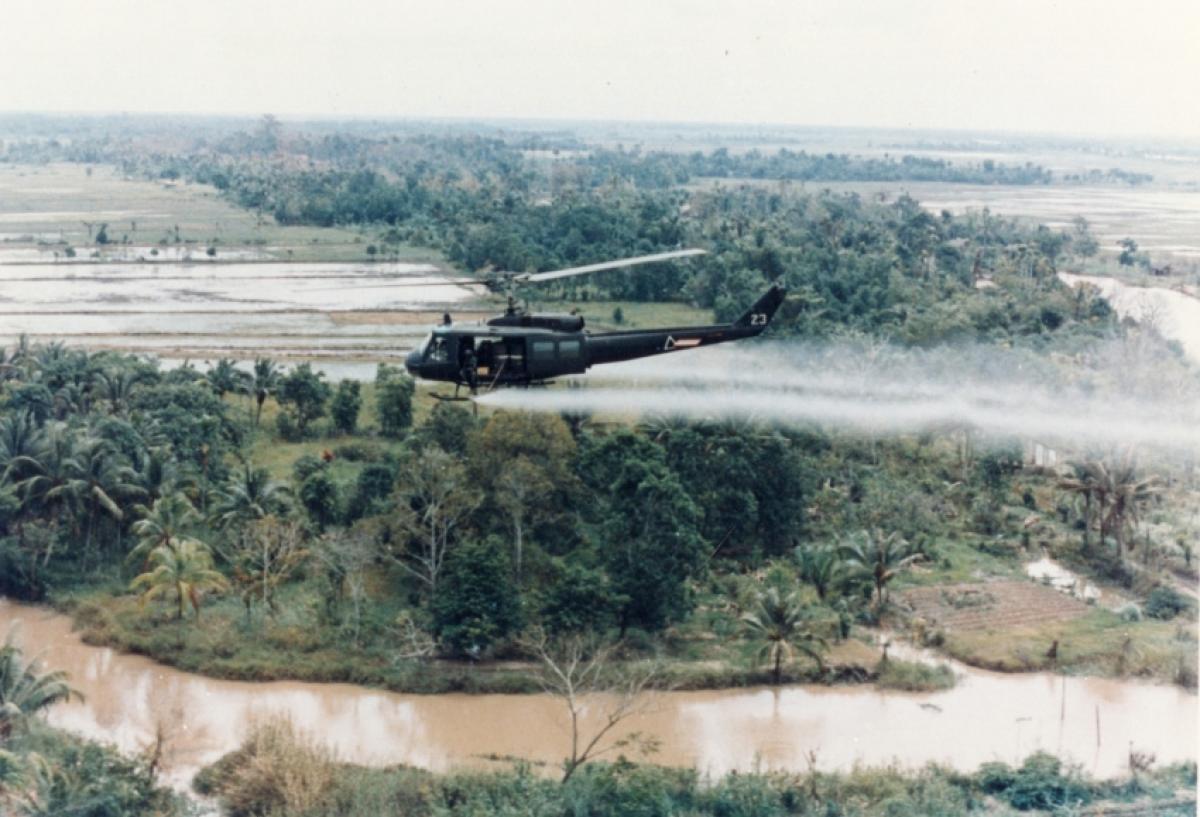
Facts: The orange toxin
Between 1961 and 1971, the US sprayed vast areas of Vietnam with a toxic substance called Agent Orange. It made trees and plants lose their leaves. The US used the toxic chemical to make it harder for soldiers from North Vietnam to hide in the jungle. The toxin also destroyed food growing in the fields. The US wanted to make sure food was scarce for the soldiers on the opposing side, but ordinary people suffered the most. The name ‘Agent Orange’ comes from the orange containers in which the toxin was stored. The US fitted the containers to helicopters and flew over the jungle and fields, spraying it over everything. Agent Orange contains several different toxic substances, including some that are so more dangerous to human than few other toxins in the world. No one knows exactly how much was sprayed over Vietnam, but it was roughly 100 million litres. Between 3 and 4.8 million people may have been affected by the toxin. Almost half a million children have been born with deformities and disabilities. The substance is now banned.Text: Erik Halkjaer
Photo: Jesper Klemedsson
Related stories
Långgatan 13, 647 30, Mariefred, Sweden
Phone: +46-159-129 00 • info@worldschildrensprize.org
© 2020 World’s Children’s Prize Foundation. All rights reserved. WORLD'S CHILDREN'S PRIZE®, the Foundation's logo, WORLD'S CHILDREN'S PRIZE FOR THE RIGHTS OF THE CHILD®, WORLD'S CHILDREN'S PARLIAMENT®, WORLD'S CHILDREN'S OMBUDSMAN®, WORLD'S CHILDREN'S PRESS CONFERENCE® and YOU ME EQUAL RIGHTS are service marks of the Foundation.



